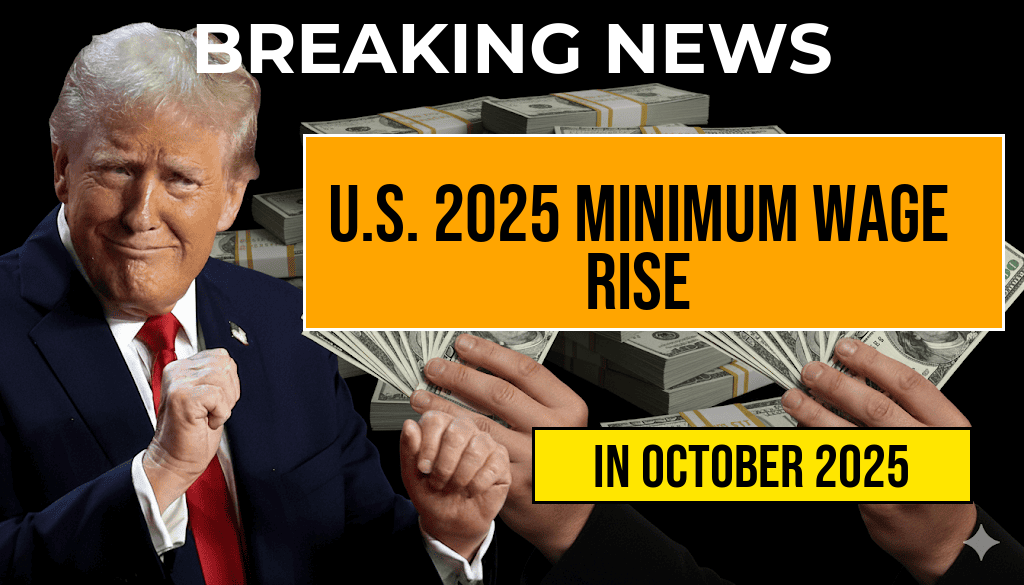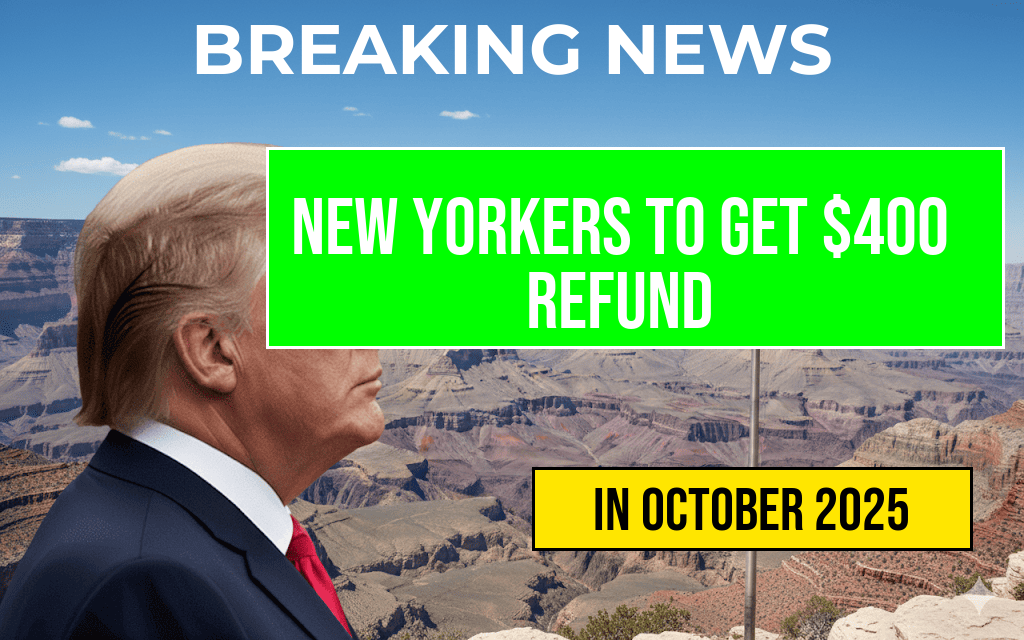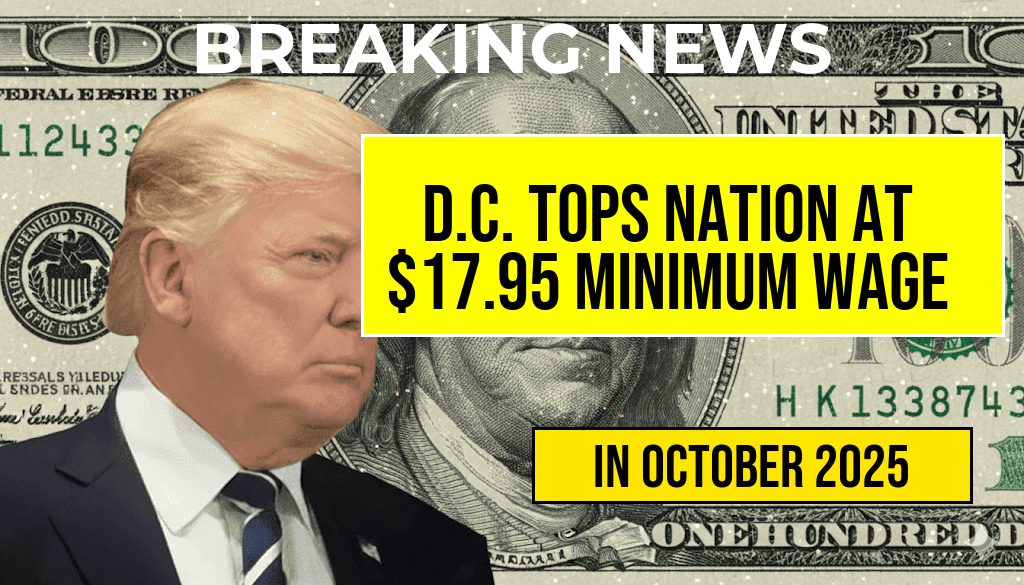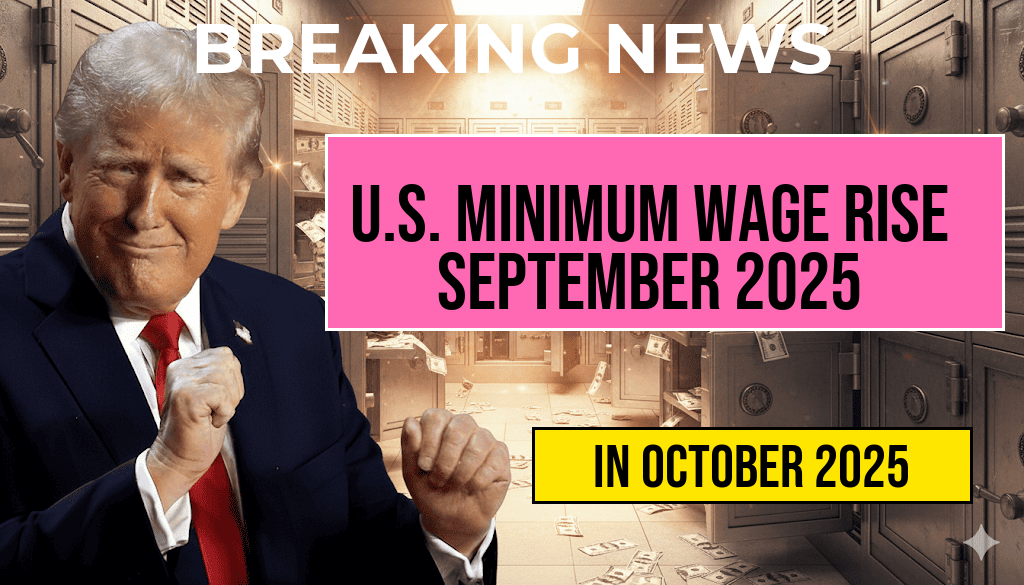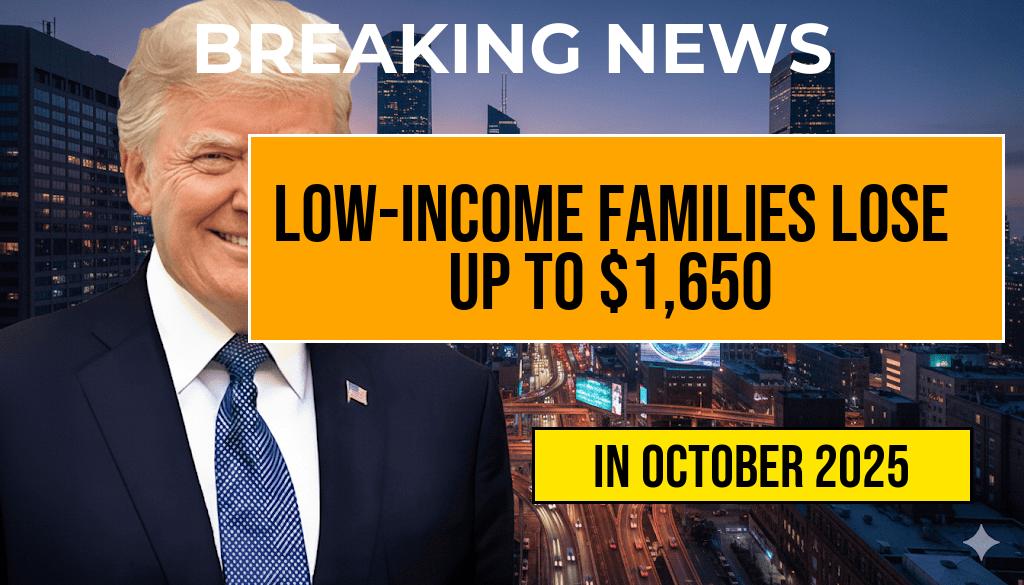Washington D.C. has secured its position as the leader among U.S. jurisdictions in paying the highest minimum wage across the nation’s top pay tiers, with an hourly rate of $17.95. This figure surpasses many states and cities, reflecting a commitment to increasing wages in line with the city’s rising cost of living and economic policies aimed at improving worker compensation. As policymakers continue to adjust minimum wage standards, D.C. exemplifies a trend toward higher pay floors, impacting thousands of workers in various sectors. The city’s approach underscores ongoing debates about economic equity, inflation, and the sustainability of wage hikes in urban centers.
Washington D.C.’s Wage Standards and Economic Implications
Background on Washington D.C.’s Minimum Wage Policies
Since 2019, Washington D.C. has progressively increased its minimum wage, aligning it with inflation and economic growth indicators. The current top pay tier, which applies to large employers and certain sectors, sets the hourly rate at $17.95. This rate is part of a phased plan to reach $15.00 per hour for large businesses, with subsequent increases designed to reach $16.10 by July 2023, and further adjustments thereafter. The city’s approach emphasizes a gradual transition to higher wages, aiming to balance economic competitiveness with social equity.
Impact on Local Workforce and Business Environment
With the minimum wage now standing at $17.95, many workers in the city’s service, government, and professional sectors benefit from improved earnings. According to recent employment data, sectors such as hospitality, retail, and public services see a notable rise in wages, which can influence consumer spending and local economic growth. However, some business owners express concern over rising labor costs, particularly small enterprises that operate with tight margins. The debate continues around the optimal wage level that supports workers without dampening employment opportunities.
Comparison with Other Cities and States
| Jurisdiction | Minimum Wage | Effective Date |
|---|---|---|
| Washington D.C. | $17.95 | 2023 |
| California | $15.50 | 2023 |
| New York City | $15.00 | 2023 |
| Seattle, WA | $16.50 | 2023 |
| Massachusetts | $15.00 | 2023 |
Compared to other high-cost states like California and New York, Washington D.C.’s top pay tier surpasses standard minimum wages, reflecting the city’s unique economic landscape. While California’s $15.50 and New York City’s $15.00 rates are significant, D.C.’s higher threshold indicates a regional effort to address urban income disparities. This positioning may influence neighboring jurisdictions considering wage adjustments to remain competitive in attracting skilled workers.
Factors Driving the Wage Increase in Washington D.C.
Cost of Living and Economic Development
Washington D.C. consistently ranks among the most expensive cities in the U.S., with housing, transportation, and healthcare costs contributing to a high cost of living. The wage increases are partly a response to these factors, aiming to provide workers with a livable income that keeps pace with expenses. The city’s economic development initiatives, which include investments in infrastructure and education, also support higher wages as part of broader efforts to sustain a resilient urban economy.
Policy and Advocacy Influences
Local advocacy groups and labor unions have played a significant role in pushing for incremental wage hikes. Their campaigns highlight the importance of fair pay in reducing income inequality and fostering economic mobility. D.C. policymakers have incorporated these voices into their legislative frameworks, leading to a phased approach that balances business competitiveness with worker welfare.
Future Outlook and Potential Changes
Looking ahead, Washington D.C. continues to explore avenues for further wage enhancements, including proposals for a $20 minimum wage for certain sectors by the end of the decade. Economic analyses suggest that these measures could further influence the city’s labor market dynamics, balancing the needs for affordable housing and sustainable employment growth. Researchers from institutions like the Urban Institute (https://urban.org) are closely examining how wage policies impact overall economic stability and inequality.
Impacts Beyond Wages
Broader Economic and Social Effects
- Consumer Spending: Higher wages increase disposable income, leading to boosted local retail and service industries.
- Workforce Stability: Elevated pay may reduce turnover rates and improve employee retention in key sectors.
- Housing Market: Increased income levels can influence housing demand, potentially raising property values and rents.
Challenges and Considerations
While wage growth can support economic equity, it also raises questions about affordability and employment levels. Some analyses, including those from the Congressional Budget Office, suggest that significant minimum wage hikes could lead to reduced employment opportunities if not carefully managed. Policymakers in D.C. are thus weighing these factors as they continue to refine wage policies.
As Washington D.C. maintains its position at the forefront of wage standards, the evolving landscape offers valuable insights into how urban centers can navigate economic growth and social fairness. The city’s ongoing efforts will likely influence broader policy discussions across the nation, especially as more jurisdictions consider similar steps to address income inequality and support their workforce.
Frequently Asked Questions
What is the current minimum wage in Washington D.C.?
The minimum wage in Washington D.C. is currently set at $17.95 per hour.
How does Washington D.C.’s minimum wage compare to other states?
Washington D.C. leads the nation with the highest minimum wage in the top pay tier, surpassing many other states and territories.
What factors contributed to Washington D.C. having the highest minimum wage?
The cost of living in Washington D.C., economic policies, and efforts to improve living standards have contributed to establishing the highest minimum wage in the country.
Are there plans to increase the minimum wage further in Washington D.C.?
While current figures place Washington D.C. at the top, future wage increases depend on legislative decisions and economic conditions.
Who is affected by the minimum wage policies in Washington D.C.?
The minimum wage policies impact low-income workers across various industries, helping to improve income levels and economic stability within the community.

